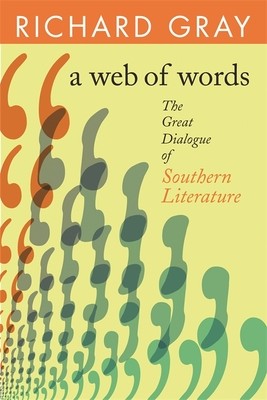
- We will send in 10–14 business days.
- Author: Richard Gray
- Publisher: University of Georgia Press
- ISBN-10: 0820330051
- ISBN-13: 9780820330051
- Format: 16.4 x 23.3 x 2.6 cm, kieti viršeliai
- Language: English
- SAVE -10% with code: EXTRA
Reviews
Description
Richard Gray is known as both a leading European scholar in American literature and a leading international scholar of the literature of the American South. Through numerous examples drawn from southern literature, a historically conscious body of writing clearly in conversation with itself, Gray helps us to understand how any literary tradition involves an open conversation between its texts--a web of words that stretches from the local to the transnational.
To read a southern story, poem, or play, Gray says, is to access a multitude of texts: surrounding, indwelling, echoing voices that exist within, and because of, a confluence of other voices. Gray first brings this idea alive by mapping the rhetoric of defeat across southern texts, with particular focus on those about the war in Vietnam. He then turns to another persistent topic in the great dialogue of southern literature: agrarianism and its viability as an alternative to globalism. Finally, Gray charts three different intertextual practices involving writings both within and outside the South. One involves a transatlantic dialogue between the fiction of Eudora Welty and European folktale; one a conversation between the indisputably southern William Faulkner and Toni Morrison, whose regional ties are more fluid and equivocal; and one the transnational dialogue on immigration and the changing ethnic makeup of the South. By talking, and listening, to many other writers, inside and outside the region, southern writers turn the intertextual space of their literature into a border territory. Their texts come to exist in an endless dialogue in which meaning is constantly being repositioned and redefined.EXTRA 10 % discount with code: EXTRA
The promotion ends in 21d.18:50:51
The discount code is valid when purchasing from 10 €. Discounts do not stack.
- Author: Richard Gray
- Publisher: University of Georgia Press
- ISBN-10: 0820330051
- ISBN-13: 9780820330051
- Format: 16.4 x 23.3 x 2.6 cm, kieti viršeliai
- Language: English English
Richard Gray is known as both a leading European scholar in American literature and a leading international scholar of the literature of the American South. Through numerous examples drawn from southern literature, a historically conscious body of writing clearly in conversation with itself, Gray helps us to understand how any literary tradition involves an open conversation between its texts--a web of words that stretches from the local to the transnational.
To read a southern story, poem, or play, Gray says, is to access a multitude of texts: surrounding, indwelling, echoing voices that exist within, and because of, a confluence of other voices. Gray first brings this idea alive by mapping the rhetoric of defeat across southern texts, with particular focus on those about the war in Vietnam. He then turns to another persistent topic in the great dialogue of southern literature: agrarianism and its viability as an alternative to globalism. Finally, Gray charts three different intertextual practices involving writings both within and outside the South. One involves a transatlantic dialogue between the fiction of Eudora Welty and European folktale; one a conversation between the indisputably southern William Faulkner and Toni Morrison, whose regional ties are more fluid and equivocal; and one the transnational dialogue on immigration and the changing ethnic makeup of the South. By talking, and listening, to many other writers, inside and outside the region, southern writers turn the intertextual space of their literature into a border territory. Their texts come to exist in an endless dialogue in which meaning is constantly being repositioned and redefined.

Reviews